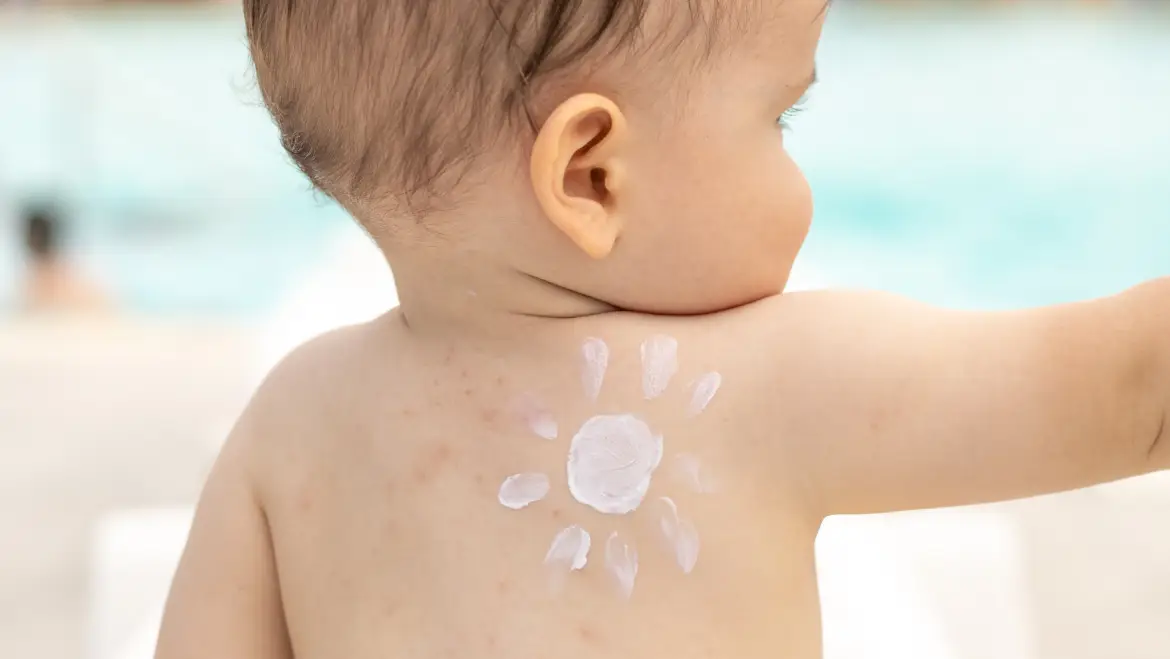A baby’s skin is soft, delicate, and still developing, so it needs a little extra care to stay healthy and protected. From changing weather to frequent diaper changes, your baby’s skin is often exposed to factors that can cause dryness or irritation.
As a parent, choosing the right baby lotion is an important part of caring for your baby’s skin every day. In this guide, we’ll walk you through everything you need to know about baby lotions: why they’re important, what to look for, and how to use them safely.
Why Do Babies Need Lotion?
Unlike adult skin, a baby’s skin is thinner, more sensitive, and tends to lose moisture much faster. Every day factors, such as frequent baths, changes in weather, friction from clothing or diapers, and spending time in air-conditioned spaces, can leave their delicate skin feeling dry or flaky. In some cases, it may even lead to minor rashes.
That’s why babies need a little extra help to keep their skin soft and comfortable. A gentle, nourishing baby lotion helps:
- Lock in and maintain moisture
- Support the skin’s natural barrier
- Prevent dryness and irritation
- Keep skin feeling smooth, healthy, and cared for
And while it may not be a direct skin benefit, massaging your baby with lotion is also a beautiful way to strengthen the bond between you and your little one.
A good baby lotion does more than moisturise. It helps protect, soothe, and care for your baby’s skin as your little one grows and adjusts to the world around them.
How to Choose the Best Baby Lotion for Your Newborn or Infant
When selecting the best baby lotion in India, it’s essential to be aware that numerous options are available. While many products claim to be effective, not all of them are formulated with your baby’s specific needs in mind. As a parent, it’s helpful to follow a clear checklist of key factors to ensure you’re making the best choice for your little one’s delicate skin. Here’s what to consider:
1. Ingredients to Look For
Always start by checking the ingredient list. Opt for an organic baby lotion in India made with naturally derived ingredients that are gentle on sensitive skin and known for their nourishing properties. The right ingredients will help protect, hydrate, and soothe your baby’s delicate skin without causing irritation.
Here are a few baby-safe natural ingredients to look for, and how they help:
| Ingredient | What It Does |
| Olive Oil | Rich in antioxidants and essential healthy fats that deeply nourish the skin. It provides lasting hydration and helps prevent moisture loss. |
| Shea Butter | Softens the skin and supports the skin’s natural moisture barrier. |
| Aloe Vera | Calms irritation and offers lightweight hydration. |
| Vitamin E | Supports healing and helps protect against environmental stressors. |
These ingredients are generally safe and effective for newborns and infants, offering moisture and comfort without clogging pores. However, it’s still a good idea to perform a patch test first.
2. Look for Moisturising Properties
A good baby lotion should draw moisture into the skin and seal it in with a light, protective layer. Look for a creamy texture that spreads easily, absorbs well, and doesn’t leave a greasy feel. It should provide lasting hydration and help maintain your baby’s natural softness and comfort. Lightweight, non-comedogenic formulas are ideal for everyday use.
3. Ingredients to Avoid in Baby Lotions
A baby’s skin is highly absorbent, which makes it especially important to avoid harsh or irritating ingredients. Try to avoid products that contain:
- Parabens
- Sulphates (SLS/SLES)
- Strong artificial fragrances
- Mineral oil
Fragrance-free or naturally mild-scented lotions are generally a safer choice, especially for babies with sensitive or allergy-prone skin.
4. Check Labels for Safety
Trustworthy baby lotions clearly list their ingredients, expiry dates, and usage instructions. Look for labels such as:
- Dermatologically tested
- Hypoallergenic
- Paediatrician-approved
- Clinically tested for safety
These terms suggest the product has been assessed for safe use on babies. If your newborn has very sensitive or eczema-prone skin, choosing a hypoallergenic formula can help reduce the risk of irritation or allergic reactions.
5. Pick a Trusted Baby Skincare Brand
Go with a reputable and trusted brand that parents have relied on for generations. Consistent quality, commitment to safety standards, and strong customer feedback are good indicators of a reliable product.
A brand that focuses on gentle, natural, and dermatologically tested formulations is one you can trust to use on your baby’s skin every day.
How to Apply Lotion Properly
Applying baby lotion for dry skin the right way helps keep your baby’s skin soft, hydrated, and comfortable. Here’s how to do it:
- Apply after a bath, when the skin is still slightly damp. This helps lock in moisture.
- Rub a small amount of lotion between your hands to warm it up before use. This brings it to body temperature, avoiding any cold shock on your baby’s skin.
- Use gentle, circular motions to massage the lotion in, starting from the chest and working your way down to the legs and arms. Don’t forget areas like the neck, behind the ears, elbows, and knees.
- Add a little extra to dry-prone spots such as the ankles, hands, and cheeks.
- Keep the layer light and even. Using too much lotion can clog pores or leave the skin feeling greasy.
- Avoid broken or irritated skin, unless a paediatrician has recommended lotion for those areas.
What Parents Should Remember
Choosing the best baby lotion is one of the many thoughtful ways parents care for their little ones. When you understand what your baby’s skin needs and what to avoid, you can make a safer choice. A gentle, nourishing lotion supports healthy skin and helps keep your baby comfortable, soft, and happy.
Remember, every baby is different. If your child has specific skin concerns such as eczema, allergies, or persistent dryness, it’s best to consult a paediatrician or dermatologist for the right guidance.
Frequently Asked Questions (FAQs)
1. Is Natural Baby Lotion Better?
Natural baby lotions are generally well-tolerated by sensitive baby skin, as they are enriched with nourishing ingredients like olive oil and shea butter and are less likely to contain harmful chemicals. However, it’s still important to check the full ingredient list to ensure the product is truly safe and gentle.
2. Can Baby Lotion Replace Moisturiser?
Yes, baby lotion is a type of moisturiser made specifically for a baby’s sensitive skin. It hydrates and helps protect the skin’s barrier, just like adult moisturisers, but is made with much gentler ingredients.
3. What Is the Use of Baby Lotion?
Baby lotion helps keep your little one’s skin moisturised, preventing dryness, flakiness, and irritation. It also supports the skin’s natural barrier and adds a calming touch during daily routines, such as massage or bedtime.
4. Can I Use Baby Lotion Daily?
Yes, you can. In fact, using natural baby lotion daily, especially after bath time and diaper changes, helps replenish moisture and protect your baby’s skin throughout the day.
5. Is It Safe to Leave Lotion on Overnight?
As long as the lotion is mild and free from harmful ingredients, it’s safe to leave it on overnight. Applying it before bedtime can help the skin absorb moisture more deeply, which is especially helpful for babies with dry skin.
6. Is It Better to Apply Lotion in the Morning or at Night?
There’s no single best time. Morning use helps protect throughout the day, while nighttime allows deep moisture absorption as your baby sleeps. The most effective time, however, is often after a bath, no matter the time of day, as it helps lock in moisture most effectively.
7. Can Baby Lotion Be Used on the Face?
Yes, but only if the lotion is gentle, mildly fragrant or fragrance-free, and formulated for sensitive skin. Always check the label and do a patch test before applying it to your baby’s face.
8. What Should I Do if My Baby Has an Allergic Reaction to a Lotion?
If your baby shows signs of irritation or discomfort, stop using the lotion right away and gently wash the area with plain water. If the redness, rash, or swelling doesn’t settle or seems to worsen, contact your paediatrician for guidance.


